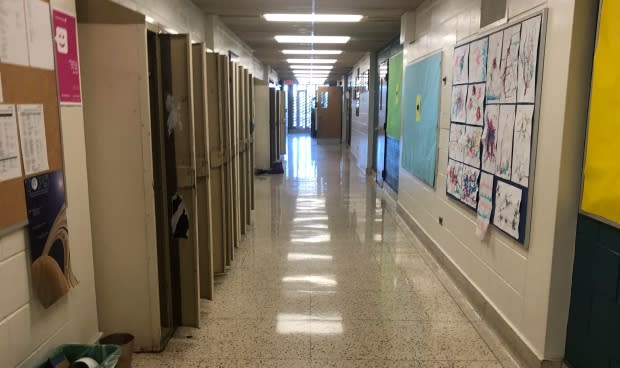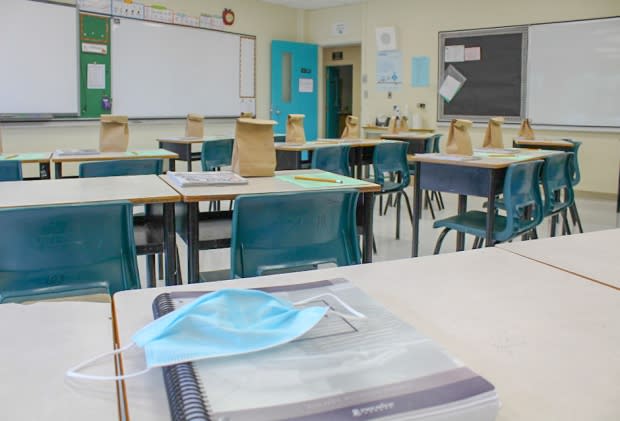The back-to-school list parents really need to help their kids amid COVID-19
Call it the pandemic pendulum.
One minute, you're (relatively) calm and remaining optimistic. The next, anxiety has crept in and you're staring down a back-to-school year unlike any other in our lifetime.
So, if you are a swirling, twirling cyclone of emotions — just think how kids are feeling, says registered psychologist Dr. Janine Hubbard.
Hubbard, who has been open about the different challenges that come with COVID-19, is sharing her real talk with parents.
Her tips and strategies are evergreen and should be kept somewhere handy. (Like, maybe on the fridge next to the COVID-19 self-assessment checklist).
1. Hey parents, grab a mirror
Hubbard says to take a quick minute for self-reflection, and look at how you're expressing your own worries.
"While it's important to have candid conversations with your children, if your feelings, emotions are really heightened, you may need to be very careful about how much of that you're exposing to your children," she said.
2. Type A? Or Type Not Right Now?
Hubbard says know the coping style that suits your kid and their personality.
Some are "information seekers. They want to know every minute detail of what that first day of school is going to look like, what their classroom is going to look like."
Others, not so much. "Some are, 'tell me when it's happening and not before then.'"
3. Kids had back-to-school worries, pre-COVID. They still do.
Hubbard says kids generally think that adults have many aspects of COVID-19 under control (relatively speaking).
"They are far more worried about who their classmates are going to be this year, or who is going to sit at the table next to them," she says.
Ask them about their fears, validate them, support them and help them problem solve.

4. Let them be bummed
Hubbard says there are lots of things that can't happen this school year, like extracurricular activities and other events, and kids are going to be let down.
"Acknowledge that disappointment. If possible, help them determine some alternate activities, some things that might work as a bit of a substitute, even if it isn't a perfect one."
5. Pump up the excitement!
Hubbard says even for kids who aren't generally a fan of school, some are just happy to get back after a long six months away.
"They've missed their friends, they've missed their structure, they've missed their routine … And for, unfortunately, a large number of children in this province, school is the safest place in their life. And there are a number of kids for whom we need to get them back in that environment," she said.
6. Empathy: Make it your theme word for this fall
This one isn't just for kids. An extra dose of Vitamin E(mpathy) could be used all around, as she notes there has been "stigma and shame associated with COVID-19," be it testing or diagnosis.
"We need to make sure that [kids] know the importance of having empathy for classmates, for family members, for members of the school environment who may have to self-isolate or who may develop the symptoms and the disease," she said.

7. Flex those flexibility muscles
Remind your kids that if nothing else, the last six months have beefed up everyone's ability to roll with the punches.
"And boy, we're still going to need that in the next school year. Because what next week looks like is probably going to be very different from the end of September or November or even into February. Remind them that this is an ever-evolving process," she said.
8. Even in a pandemic, you have control over some things. Focus on those.
Hubbard says the information, and also unknown, of COVID-19 can feel overwhelming at times.
But tell yourself there are things you can do, like hand-washing, wearing a mask and physical distancing.
"All of the safety precautions we have been taught over the last six months, now is the time to make sure we're using them."

Read more from CBC Newfoundland and Labrador

